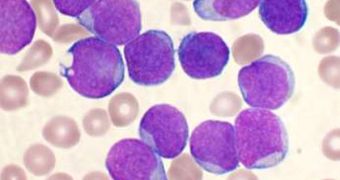A collaboration of scientists from the VIB (the Flanders Institute for Biotechnology), the Katholieke Universiteit (K.U.) Leuven, both in Belgium, and the Hopital Saint-Louis, in Paris, France, has recently determined the nature of one of the most important factors determining the onset of acute lymphoblastic leukemia. This is a very severe form of the condition, and unfortunately it mostly affects children. The Belgian team was able to discover that the loss of certain genes was a clear indicator of an individual's chance of developing this disorder. When the specific gene PTPN2 ceases to function inside the cell of patients, the cancer cells become able to endure in the body for longer, and also to grow and develop faster.
In other words, it would appear that PTPN2 has an important tumor-suppressant role in the human body. The discovery could inform researchers in future studies, for the development of new, advanced methods of fighting this form of blood cancer. As some scientists have accurately pointed out in the past, without a clear understanding of how leukemia appears, it is very difficult to find a viable cure against it. This is why numerous research groups around the world have been pressing towards shedding more light on the intricate mechanisms that underlie the disease. Details of the new results appear in the latest issue of the esteemed scientific publication Nature Genetics.
When people develop leukemia, their bone marrow becomes unable to produce additional white blood cells. Given that these particular immune cells play an important role in the body's defense against infections, the overall immunity of the organism decays, leaving people more exposed to invading pathogens. Various bacteria, microbes and viruses, that would have otherwise been fought off easily, can then take a hold, and begin to spread. Their combined action can easily kill those infected, given that their immune systems can no longer defend vital organs against their action.
The disease affects in excess of 50,000 adults and children every year, in the United States alone. In the case of T-cell acute lymphoblastic leukemia (T-ALL), white blood stem cells begin to differentiate uncontrollably, a phenomenon that results in a very large number of immature white blood cells making their way into the blood stream. They are very ineffective against invaders, and can easily be overrun by pathogens. A combination of genes was long-suspected to be responsible for this, and the team now managed to identify PTPN2 as a major player.

 14 DAY TRIAL //
14 DAY TRIAL //